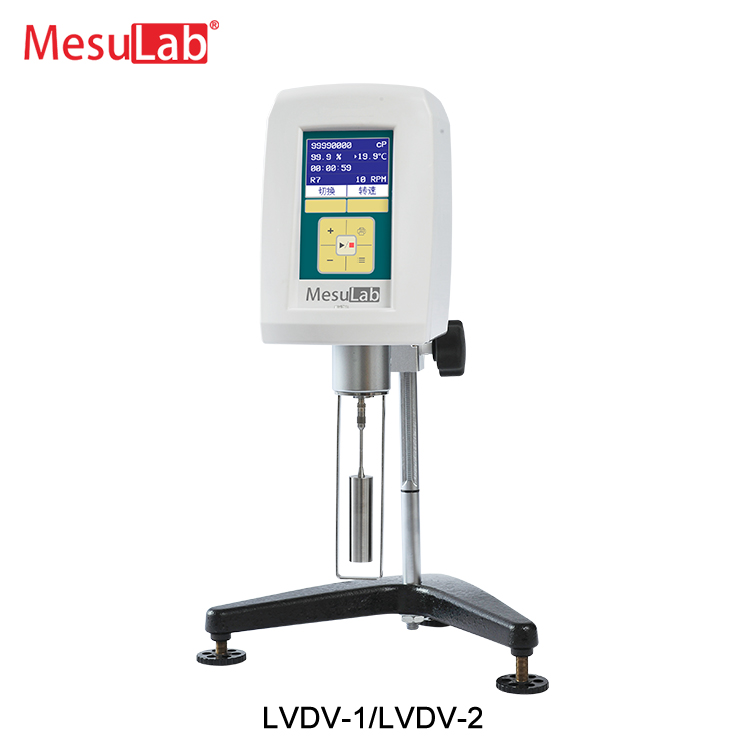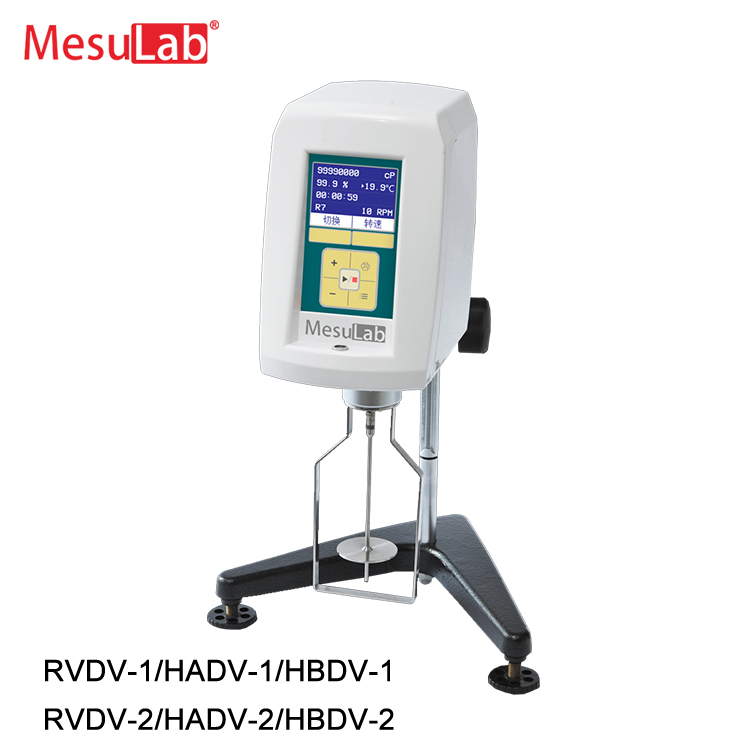How to get the correct result of rotary viscometer
Rotational viscometer is an instrument commonly used to measure fluid viscosity, and its accuracy and reliability are very important for product quality control, research and development and production process monitoring. However, the measurement results of rotary viscometer may be influenced by many factors. The following are some major influencing factors and suggestions:
1. Calibration and performance of the instrument:
-The rotational viscometer needs to be calibrated periodically to ensure the measurement accuracy. Uncalibrated instruments may lead to measurement results with large errors. Calibration should be made with standard oil or other standard substances, and inspection and adjustment should be made according to the manufacturer's instructions.
-The responsiveness and stability of the instrument also affect the measurement results. Wear or aging of instrument parts will reduce the measurement accuracy, so it is necessary to maintain and replace worn parts regularly.
2. Temperature control:
-Viscosity is significantly affected by temperature, and temperature fluctuation will directly affect the measured value of viscosity. Thermostatic equipment must be used to ensure that the temperature of the sample is constant during the measurement, or to record the temperature change and correct the temperature of the measurement results.
-Ensure the accuracy of the temperature sensor and its uniform distribution in the sample, and avoid data deviation caused by uneven temperature.
3. Sample handling and preparation:
-Air bubbles or impurities in the sample will affect the viscosity measurement. Before the test, the sample should be fully stirred and treated in vacuum to remove bubbles.
-Ensure the uniformity of the sample, especially for non-Newtonian fluids, whose internal structure may affect the viscosity reading. For such samples, special treatment and analysis methods may be needed.
4. Selection of measurement conditions:
-Choosing the right rotor and speed is very important for obtaining accurate data. Different rotors and rotating speeds are suitable for samples with different viscosity ranges, and improper selection will lead to measurement errors or instrument damage.
-Appropriate measurement conditions, such as rotor shape, size and speed, should be selected according to the viscosity characteristics of samples and instrument specifications.
5. Operator's skills:
-Proper operation of the rotary viscometer is very important for obtaining reliable data. Operators need to know the working principle, operating procedures and data processing methods of the instrument.
-Provide sufficient training and practical experience to ensure that each operator can master the skills of sample preparation, instrument operation and data analysis.
6. Cleaning and maintenance of instruments:
-The cleanliness of the instrument will also affect the measurement results. The residual samples will change the properties of the rotor surface and affect the accuracy of subsequent measurement.
-Clean the rotor and sample cup regularly to ensure that no residue interferes with the measurement. Use proper cleaning agents and methods to avoid damaging instrument components.
7. Data processing and error analysis:
-How the data is processed will also have an impact on the final result. Proper mathematical processing should be carried out on the original data to obtain accurate viscosity values.
-Understanding the sources of measurement errors, including systematic errors and random errors, and making scientific error analysis will help to improve the reliability of data.


